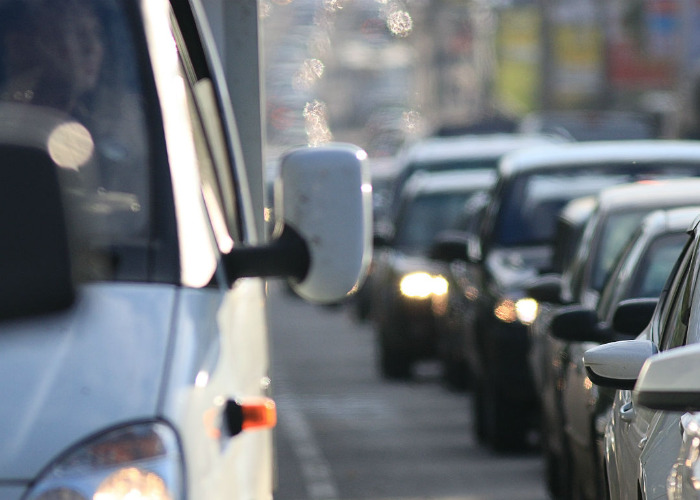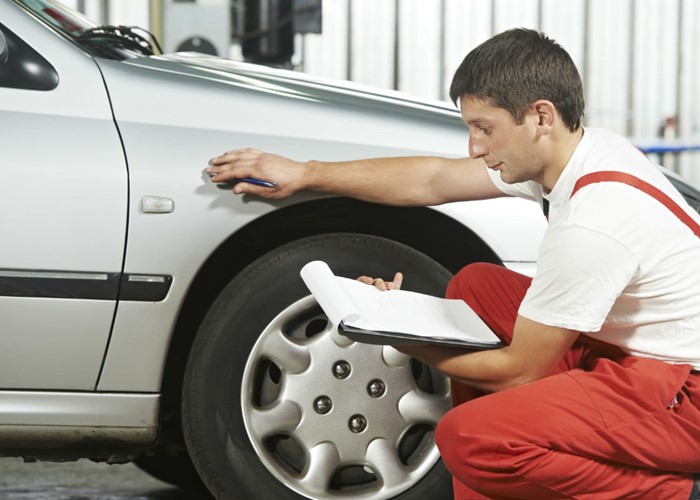New road tax rules April 2017: what changes to Vehicle Excise Duty mean for motorists

You could be left hundreds - or even thousands - of pounds out of pocket as a result of new road tax rules being introduced next month (April 2017). We explain what's changing, and what you need to do about it.
A dramatic overhaul of the Vehicle Excise Duty rules could see motorists paying thousands of pounds more in road tax if they delay buying a car until April.
So if you are planning to buy a new motor, you should do so as soon as possible or risk being out of pocket.
Read on to find out what's changing and what it means for your money.
The background
In 2015, when George Osborne announced changes to Vehicle Excise Duty (or road tax), to reflect progress in emissions technology, it passed most people by.
We were lulled into a false sense of security by the fact nothing would happen until 1 April, 2017 – which was too far in in the future to worry about.
Now, suddenly, it is almost upon us, so it’s essential we get to grips with what it means for us – and whether there’s anything we can do to cut the cost.
Cut the cost of insuring your car: compare quotes with loveMONEY
What’s changing?
The changes reflect the fact that car companies have made major breakthroughs in cutting vehicle CO2 emissions.
Under the existing rules, cars that emit less than 100g/km don’t attract any tax: which applies to around 75% of all new cars.
To keep money rolling in from this tax, under the new system, producing low emissions won’t be enough to free drivers up from the tax: cars will have to produce no emissions at all.
It means that only electric cars and those powered by hydrogen will be exempt.
Need a loan for that new car? Compare rates on loveMONEY
Who will be affected?
This will be a major blow for those driving low emissions cars (under 100g/km).
A car emitting 99g/km bought before 1 April will be free of road tax for life.
Those bought after the date will cost £120 in the first year, and £140 a year thereafter.
There will be a still be a one-off charge in the first year that a car is on the road too.
This will continue to depend on the emissions the car produces and, to determine this charge, cars are split into 13 bands, ranging from zero emissions to over 255g/km.
However, the charges themselves will be much higher, and there will be an additional cost in years 2-6 for cars worth over £40,000.
There will still be no charge in the first year for cars with zero emissions, but the tax will kick in at 1g/km (it starts at 131g/km at the moment).
It will also rise further and faster than before, so that cars emitting 131g/km will be taxed £200 instead of £130, those emitting 151g/km will be charged £500 instead of £180, those emitting 171g/km will be charged £800 instead of £295, and those emitting 191g/km will be charged £1,200 instead of £490.
The highest possible charge will continue to apply to those emitting over 255g/km, but that will rise from £1,100 to a whopping £2,000.
Other factors to consider

There’s also a five-year £310 supplement for any cars costing over £40,000, which kicks in from year two - and lasts until year six of the car’s life.
The supplement also applies to zero-emissions cars.
They will pay nothing in the first year, but £310 a year from years 2-6 (compared to cars worth over £40,000 that produce emissions, which will have to pay £450 a year in years 2-6).
This will be a nasty surprise for those buying luxury low- or zero-emissions cars, which are currently tax-free.
Buyers cannot even negotiate a discount to bring the car under the £40,000 threshold because it will still be taxed on the list price.
They need to beware of optional extras too, because the list price you pay tax on will include all these extras. In some cases, spending a few hundred pounds on extras could end up costing you hundreds more in tax.
Cut the cost of insuring your car: compare quotes with loveMONEY
Better off
There are some owners who will be better off – eventually. Those driving more polluting cars will pay a much higher tax in the first year, but much lower tax in subsequent years – so eventually they will break even.
A car emitting over 255g/km, for example, currently costs £1,100 in the first year, and £505 a year thereafter.
Under the new system it costs £2,000 in the first year, and £140 thereafter. It will therefore take three and a half years before the new system becomes more cost-effective.
If this high emissions car cost over £40,000, however, it would take just shy of eight years before they were better off under the new system, because the £310 a year surcharge for years 2-6 would set them back so far.
A car emitting 186g/km, meanwhile, would cost £800 in the first year - as opposed to the current charge of £490.
However, thereafter it costs £140 a year instead of £265.
It means drivers will be better off under the new system after just shy of four years.
Cut the cost of insuring your car: compare quotes with loveMONEY
What can you do?
The change will affect anyone buying a new car from April this year.
All cars registered before then will come under the current system for life.
Therefore, if you are in the market for a new car, it makes sense to do the calculations, and work out whether you would be better off bringing the purchase forward to before 1 April so you can benefit from the current system, or wait until April, and take advantage of the new one
If you are planning to by a low emissions car, or an expensive vehicle, it may make sense to bring the purchase forward, because in most cases the current tax system will work out more cost-effective.
James Hind, founder of the car buying platform www.carwow.co.uk says: “Some models will cost significantly more to tax each year, so there are long-term savings to be had by buying before the new system kicks in.
Hybrid cars and small petrol-powered city cars will be cheaper to tax if you buy before 1 April.”
If you cannot buy your low-emissions car before April, then when you eventually do buy, it’s worth considering a nearly-new car, which will continue to be taxed under the old system.
Hind says he expects there to be reasonable interest in nearly new cars of this kind after the system changes.
Resale value
If you prioritise having a brand new car over the tax regime, it’s worth bearing in mind that not only will you pay more tax, but it could hurt the resale value of the car when you come to sell it on.
Second-hand car buyers will be aware that a car that’s just a few months newer, and taxed under the new system, will cost them £140 a year more to run for life.
This is bound to have a knock-on effect on the price they are willing to pay.
Conversely, if you are planning to buy a car with higher emissions, it may be worth waiting for the new car tax regime, especially if you plan to own the car for a while, because you will pay less over the life of the car. Hind says:
Some models will be cheaper afterwards – notably anything that costs just under £40,000 while emitting lots of CO2."
If you are buying a year or more down the track, it may also make sense to consider a car that’s more than a year old, but taxed under the new system.
For all cars under £40,000 with emissions over 141g/km, the annual charge will be lower under the new system, so once someone else has paid the first year’s higher charge, you could save money immediately by buying a car that’s taxed under the new system.
Of course, once we have gone beyond April, anyone wanting to own a brand-new car will have no choice buy the pay tax under the new system.
The only silver lining is that when Osborne announced the change, he also said that, from 2020, any money raised by car tax would be ploughed straight into a road repair fund – and not swiped by the Treasury for general spending.
This will be the first time since the 1930s that a car tax will actually pay for the roads.
So while you may end up paying more in tax, there’s a good chance you will end up paying less to have your car fixed as a result of driving on the UK’s poorly maintained roads.
Need a loan for that new car? Compare rates on loveMONEY
Read more on loveMONEY:
Comments
Be the first to comment
Do you want to comment on this article? You need to be signed in for this feature